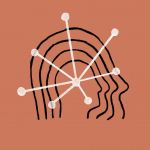Copyright in AI: Thomson Reuters wins first US victory

The Delaware Federal Court issued a historic decision on copyright protection in artificial intelligence, siding with Thomson Reuters in a dispute with a former competitor. District Court Judge Stephanos Bibas ruled that Ross Intelligence violated copyright by using Thomson Reuters content to create a competing AI-based legal platform.
This decision became the first US legal precedent concerning the principle of “fair use” in litigation related to artificial intelligence. The fair use principle traditionally allows the use of copyrighted materials without permission under certain circumstances.
The case gains particular significance amid numerous lawsuits against major technology companies, including OpenAI, Microsoft, and Meta Platforms. Rights holders, including authors, record companies, and artists, claim their works are illegally used to train AI systems, creating competing content and threatening their revenue sources.
A Thomson Reuters representative welcomed the court’s decision: “We are satisfied that the court ruled in our favor and confirmed that Westlaw’s editorial content, created and maintained by our legal editors, is protected by copyright and cannot be used without our consent. Copying our content is not ‘fair use’.”
Judge Bibas revised his previous decision to submit the fair use question to a jury. “I looked more carefully at the case materials and realized that my previous summary judgment decision was insufficient,” he said. However, the court ruled that the main case should still be heard by a jury.
This decision could become a key precedent for future litigation in AI and copyright, especially given the growing number of disputes between technology companies and content rights holders.





